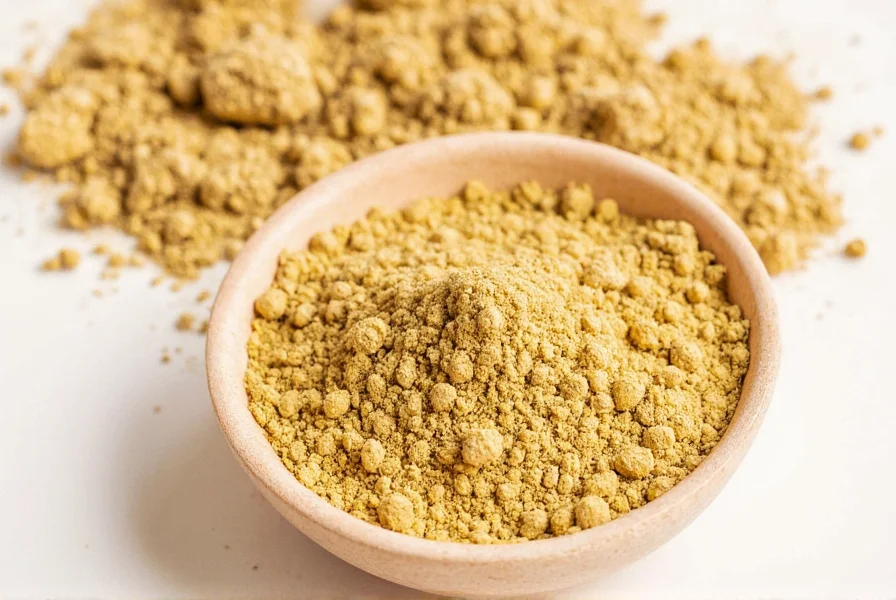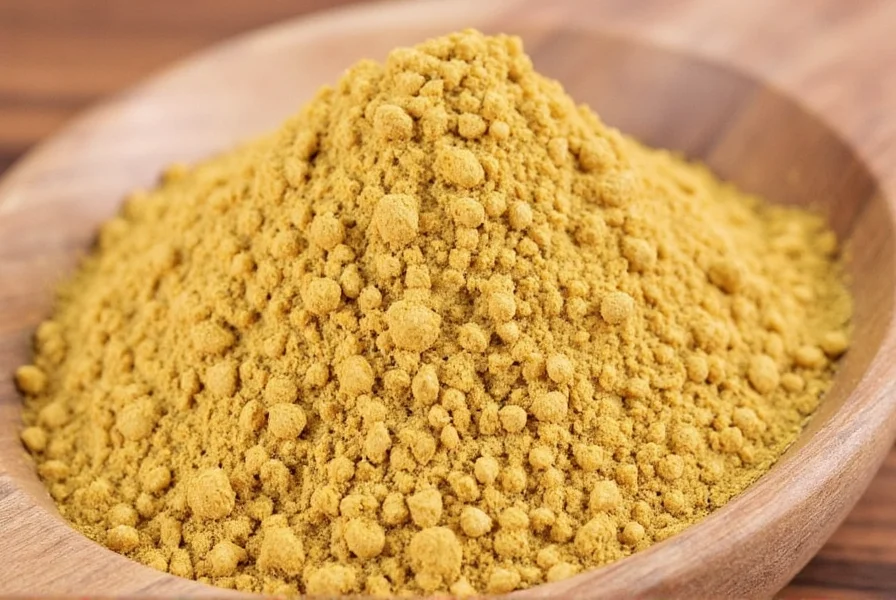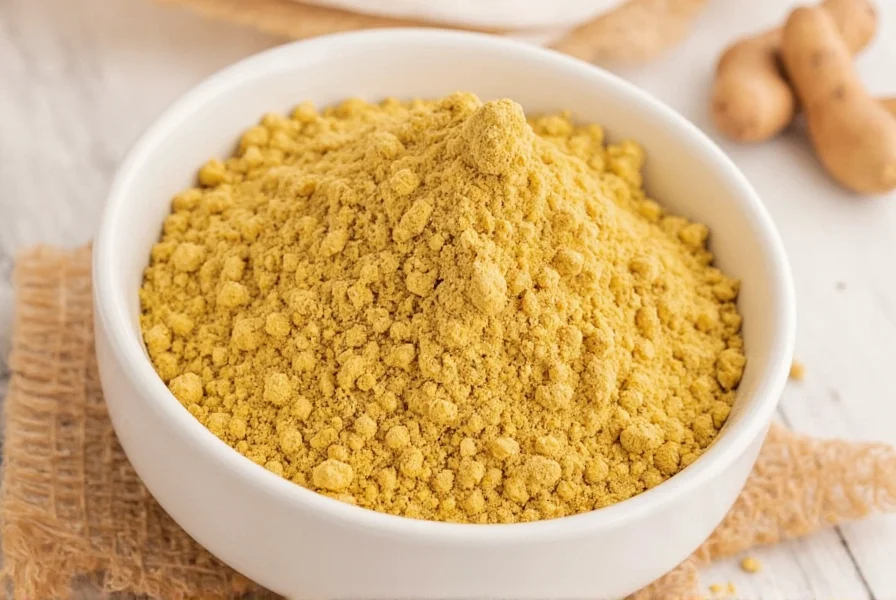Running out of ginger powder mid-recipe doesn't have to derail your cooking plans. Whether you're baking gingerbread, making curry, or preparing homemade chai, several common pantry ingredients can effectively replace ginger powder while maintaining the essential warm, spicy character your dish requires. Understanding proper substitution ratios and flavor profiles ensures your culinary creations turn out perfectly even without this specific spice.
Top Ginger Powder Substitutes and Their Applications
Ginger powder provides concentrated warmth and subtle citrus notes that enhance both sweet and savory dishes. When seeking alternatives, consider both the intensity and flavor profile of potential substitutes to maintain your recipe's intended character. The right ginger powder replacement depends on your specific cooking context and what ingredients you have available.
Fresh Ginger Root
Fresh ginger offers the most authentic flavor profile when substituting for ginger powder. The fibrous root contains gingerol, the compound responsible for ginger's characteristic heat and aroma. When using fresh ginger as a ginger powder alternative, remember that its flavor is more vibrant but less concentrated.
For proper fresh ginger to powder conversion, use 1 tablespoon of freshly grated ginger for every 1/4 teaspoon of ginger powder called for in your recipe. This ginger powder substitute ratio accounts for the moisture content in fresh ginger and ensures balanced flavor. Always peel the ginger before grating, and for best results, use a microplane grater to extract maximum flavor.

Allspice as Ginger Powder Replacement
Allspice makes an excellent ginger powder substitute due to its complex flavor profile that combines notes of cinnamon, nutmeg, and clove with subtle peppery warmth. This versatile spice works particularly well in baked goods and spice blends where ginger's distinctive flavor isn't the dominant note.
When substituting allspice for ginger powder, use a 3:4 ratio—meaning 3/4 teaspoon of allspice replaces 1 teaspoon of ginger powder. This ginger powder alternative works best in recipes like pumpkin pie, spice cakes, and certain curry blends where the flavor complexity enhances rather than competes with other ingredients.
Pumpkin Pie Spice Blend
For sweet applications, pumpkin pie spice serves as a practical ginger powder replacement. This pre-mixed blend typically contains cinnamon, ginger, nutmeg, and cloves in balanced proportions. When using pumpkin pie spice as a ginger powder substitute, maintain a 3:4 ratio (3/4 teaspoon pumpkin pie spice for 1 teaspoon ginger powder).
This substitution works exceptionally well in baked goods like ginger snaps, pumpkin bread, and apple pie where the additional spices complement rather than overwhelm the intended flavor profile. Keep in mind that pumpkin pie spice will introduce additional flavor notes beyond what pure ginger would provide.
Other Effective Ginger Powder Alternatives
Several additional spices can function as ginger powder substitutes depending on your specific recipe requirements:
- Cardamom: Use 1/2 teaspoon cardamom for 1 teaspoon ginger powder. Best for Scandinavian baking and certain Indian dishes.
- Cinnamon: Substitute 1/2 teaspoon cinnamon for 1 teaspoon ginger powder. Works well in sweet applications but lacks ginger's distinctive bite.
- Mace: Use 3/4 teaspoon mace for 1 teaspoon ginger powder. Offers similar warmth with more subtle floral notes.
- Galangal: Substitute fresh galangal at a 1:1 ratio with fresh ginger. Common in Southeast Asian cuisine but has a sharper, more medicinal flavor.
| Substitute | Ratio (for 1 tsp ginger powder) | Best For | Flavor Notes |
|---|---|---|---|
| Fresh ginger | 1 tbsp grated | All applications | More vibrant, citrusy |
| Allspice | 3/4 tsp | Baking, curries | Complex, warm, peppery |
| Pumpkin pie spice | 3/4 tsp | Sweet recipes | Additional spice notes |
| Cardamom | 1/2 tsp | Baking, chai | Floral, citrus undertones |
| Cinnamon | 1/2 tsp | Sweet applications | Sweeter, less spicy |
Special Considerations for Ginger Powder Substitutions
When selecting a ginger powder alternative, consider your recipe's specific requirements. In savory dishes like stir-fries and curries, fresh ginger provides the most authentic flavor profile. For baked goods, allspice or pumpkin pie spice often works better as they complement other warm spices commonly used in desserts.
Recipes requiring ginger's distinctive bite—such as ginger snaps or ginger ale—present more challenging substitution scenarios. In these cases, combining substitutes often yields better results. For example, using half allspice and half cinnamon can create a more complex flavor profile that better approximates ginger's unique characteristics.
Remember that each substitute affects both flavor and texture. Fresh ginger adds moisture to recipes, which may require slight adjustments to dry ingredients in baking. Powdered alternatives maintain the dry ingredient balance but introduce different flavor compounds that interact with other recipe components.

Practical Tips for Successful Substitutions
When substituting for ginger powder, start with slightly less than the recommended ratio and taste as you go. You can always add more spice, but you cannot remove it once incorporated. For baked goods, mix your substitute spice thoroughly with other dry ingredients before combining with wet components to ensure even distribution.
Consider the recipe's cooking time when selecting substitutes. Spices like cinnamon and allspice become more pronounced with longer cooking times, while fresh ginger's flavor remains relatively stable. In slow-cooked dishes, you may need to reduce the amount of powdered substitutes compared to quick-baking applications.
For the most accurate ginger powder replacement in international cuisine, research traditional spice blends from that culinary tradition. Many cultures have established combinations that can guide your substitution choices while maintaining authentic flavor profiles.
Frequently Asked Questions
Can I use ground cinnamon instead of ginger powder?
Yes, you can substitute ground cinnamon for ginger powder at a 1:2 ratio (use 1/2 teaspoon cinnamon for every 1 teaspoon of ginger powder). While cinnamon lacks ginger's distinctive bite, it provides similar warmth. This substitution works best in sweet recipes like pumpkin pie or apple crisp, but won't replicate ginger's unique flavor in dishes like ginger snaps or stir-fries.
What's the best ginger powder substitute for baking?
For baking applications, pumpkin pie spice makes the best ginger powder substitute when used at a 3:4 ratio (3/4 teaspoon pumpkin pie spice for 1 teaspoon ginger powder). This blend contains ginger along with complementary spices like cinnamon and nutmeg, creating a well-rounded flavor profile that works particularly well in cakes, cookies, and quick breads where ginger's distinctive bite isn't the primary flavor note.
How do I substitute fresh ginger for ginger powder in recipes?
To substitute fresh ginger for ginger powder, use 1 tablespoon of freshly grated ginger for every 1/4 teaspoon of ginger powder called for in your recipe. Always peel the ginger before grating, and for maximum flavor extraction, use a microplane grater. Keep in mind that fresh ginger adds moisture to recipes, which may require slight adjustments to dry ingredients in baking applications.
Can I use allspice as a direct replacement for ginger powder?
Allspice works well as a ginger powder replacement but requires ratio adjustment—use 3/4 teaspoon allspice for every 1 teaspoon of ginger powder. While allspice shares ginger's warm, spicy characteristics, it has additional flavor notes reminiscent of cinnamon, nutmeg, and clove. This makes it particularly suitable for baked goods and certain curry blends, but less ideal for recipes where ginger's distinctive flavor is the star, such as ginger tea or ginger snaps.
What's the difference between using fresh ginger versus ginger powder in recipes?
Fresh ginger offers a brighter, more citrusy flavor with sharper heat, while ginger powder provides more concentrated, earthy warmth with longer shelf stability. Fresh ginger contains gingerol, which converts to zingerone when cooked, creating a different flavor profile than ginger powder's more stable compounds. When substituting between forms, remember that 1 tablespoon fresh grated ginger equals approximately 1/4 teaspoon ginger powder due to differences in moisture content and concentration.











 浙公网安备
33010002000092号
浙公网安备
33010002000092号 浙B2-20120091-4
浙B2-20120091-4